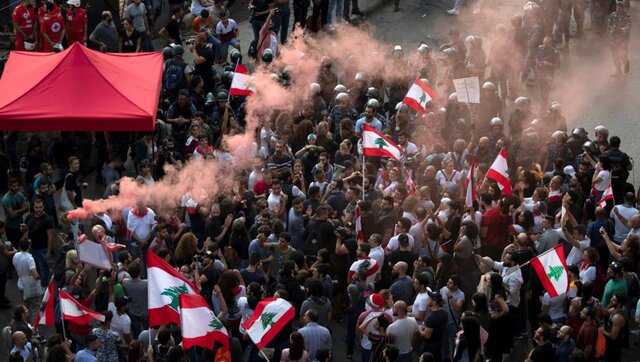Speaking to the website of the Strategic Council on Foreign Relations, Hassan Lasjerdi commented on the developments in Lebanon, Syria and Iraq, noting that we should move beyond our daily routine and improve the horizon of our outlook to the level of regional and even transnational conflicts. He added: “Anyway, the issue of Iran-US challenge, Iran-Saudi Arabia, Syria with certain Arab countries and Qatar’s challenge with Saudi Arabia and other regional issues in the last couple of years has created a new position taking in our region.
He said: Many analysts believed that since 2006, when the issue of the Resistance became more serious and as of the beginning of the new century the Americans have pursued the goals of democratization in the Middle East, the struggle for democracy and resistance in our region was conceived which has now reached the stage of maturity. In fact, competition between two outlooks in the region has posed challenges.
Referring to the pressures of certain countries on Lebanon to wage a civil war to weaken Hezbollah’s power, Lasjerdi said: “In Lebanon, it seems that after about two years that the government had not been formed and the debate over the election of the president had faced difficulty finally Lebanon was able to establish a new government through various consultations and efforts.”
He praised the ideas of the Resistance in resolving the Syrian, Iraqi and even Yemeni equations, adding: “Because of the kind of outlook the Hezbollah and especially its leader Seyyed Hassan Nasrallah have had to help the government and its formation and most importantly, unlike previous rounds where there were deep conflicts between the March 14th and March 8th Alliances, Mr. Saad Hariri’s view seemed to be somewhat vulnerable. During Mr. Hariri’s premiership, the atmosphere in Lebanon tilted towards national unity and reconciliation even between March 14th and 8th Alliances.”
In this context, the analyst of regional developments continued: Under these conditions, the Americans and Saudi Arabia and certain Arab countries seemed to have designed economic sanctions against Lebanon by putting pressures, cutting aids and halting loans in order to undermine the consensus that was shaping.
Emphasizing the opposition of Nasrallah to the resignation of Hariri and the need to preserve the current government, he said, “What draws attention currently is that Lebanon is somehow turned into a place of competition and dispute for regional and trans-regional forces with a view to target the Resistance.
At the same time, Lasjerdi emphasized the need for Saad Hariri to be accountable to popular demands and the responsibility for his actions in the government. He must be accountable to those who voted for him. He is sitting on the chair of the prime minister on behalf of the people. But it must be borne in mind that sometimes you see the society, the government and the ruling establishment displays a weak performance in character and function, but it also happens when there are other pressures beyond the current ones.
In Lebanon today more than being normal events based on current developments the recent unrests revolves around the demands of the external elements with an aim to undermine stability and peace in Lebanon.
The Khabaronline editorial board member cited efforts by the US and Saudi Arabia and certain other Arab states to keep the protests going on in Lebanon and cited reports that Saad Hariri’s resignation was not coordinated with Michel Aoun, saying there have been links between the Hariri family and Saudi Arabia for a long time. At the same time, Saudi Arabia has been keen to follow developments in Lebanon in recent years and has been influential on the formation of previous governments.
The analyst also pointed to Michel Aoun’s plan to focus on dialogue between parties and groups as a solution and said: The common chapter of Lebanese problems or even other countries in crisis and facing protests was lack of dialogue. Today in particular, Lebanon, Iraq, and even Syria are suffering from these shortcomings in dialogue. Mr. Aoun’s plan appears to have been at least a short-term, cross-cutting solution to the issue of convergence, and had calmed down the unrest in Lebanon for a while in the light of the tactics of Lebanese politicians. It was a calculated plan to solve the big problems in Lebanon.










0 Comments